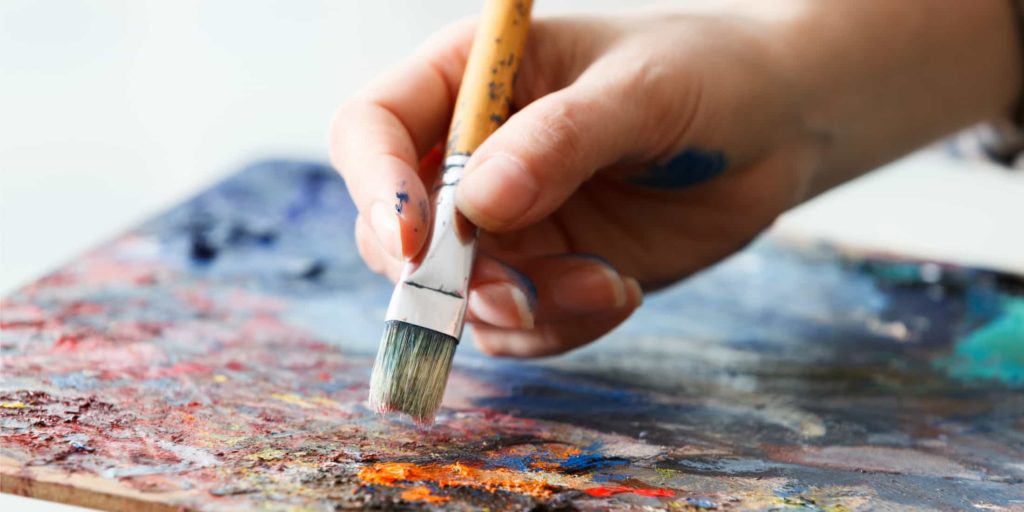Where there is depression, art often seems to follow—sometimes great art. Poe, Pollock, Michelangelo, Hemingway, Keats, Gauguin, Dickens and Blake are just a few famous creative artists who are known to have suffered from terrible bouts of depression. But how exactly do depression and art interrelate? Do depressive episodes somehow aid in the creative process, or is there something about being an artist in any creative field that predisposes one to develop depression? Psychologists and psychiatrists have studied and pondered this question for decades, and most have concluded that depression does play a role in creative output.
How Artists Deal with Depression
Because creative people tend to be highly conscious, reflective and aware, it seems they’re inclined to spend far more time thinking over their failures, fears, insecurities and disappointments than most people. As idealists with expansive imaginations, they can easily imagine lives lived differently, with far higher levels of achievement and satisfaction. Also, if artists have a strong social consciousness, as many creative people do, they may spend a lot of time imagining possible solutions to social, political and economic problems in the world. Unfortunately, their dreamed-of solutions may not always be practical or feasible. In short, creative people can become chronically frustrated because their idealism and reflective natures make it impossible for them to accept their own failures or those of society. Others without such a creative inclination may be saddened in the moment. But they’ll be far less likely to tie themselves up in knots imagining and re-imagining alternative histories that could have happened but didn’t, or should happen but never will. Depression can be a debilitating condition, but often it is a warning sign and a cry for help. In other words, it calls for action, and those with great artistic ability naturally turn to their art to express what they’re feeling. Their depression may not be the cause of their art, but it can be a motivation for it, or a coping mechanism for it. That helps explain why so many creative people burdened with depression have managed to maintain such an impressive output of creative works.
Art as Therapy for Depression
Additional evidence suggesting that art can be a coping mechanism for depression comes from the experiences of those who’ve participated in art therapy programs in rehab centers. Thanks to an excellent track record of success, art therapy has been gaining in popularity for the treatment of addiction and a whole host of mental health disorders, including depression. When used to treat depression, art therapy functions as an outlet for expressing feelings that aren’t easy to put into words, or that are so repressed or hidden that they can only be revealed through the free and open channels of the creative process. Artistic practice of all types takes the artist deeper into their own subconscious, where the answers to the mysteries of mental illness are more likely to be found. In art therapy, the process is guided by trained counselors who can show patients how to unlock the keys to their own minds. The many great artists who suffered from depression didn’t usually have such guidance, but similarly, they found their way to a creative place that was driven by an inner instinct to resolve negative feelings through artistic expression. Here then, we can see how the link between art and depression is created or strengthened. We can also see why art is an effective and useful practice for anyone looking to express and help overcome their suffering by developing greater self-awareness and understanding. While art can be a good vehicle for deeper expression or understanding of depression, it is important to remember that depression requires appropriate professional treatment — art alone cannot always resolve it. Sources Creative Something: The Link between Depression and Creativity, and How it Can Be Good for You https://creativesomething.net/post/55508909341/the-link-between-depression-and-creativity-and GoodTherapy.org: Art Therapy as a Treatment for Depression https://www.goodtherapy.org/blog/art-therapy-depression-expression-0619125



